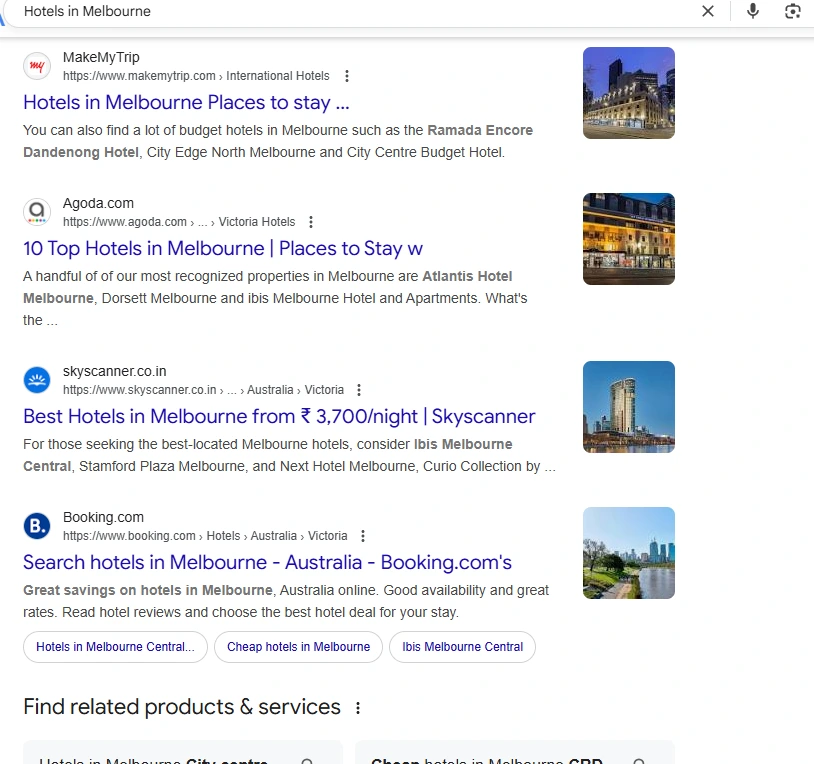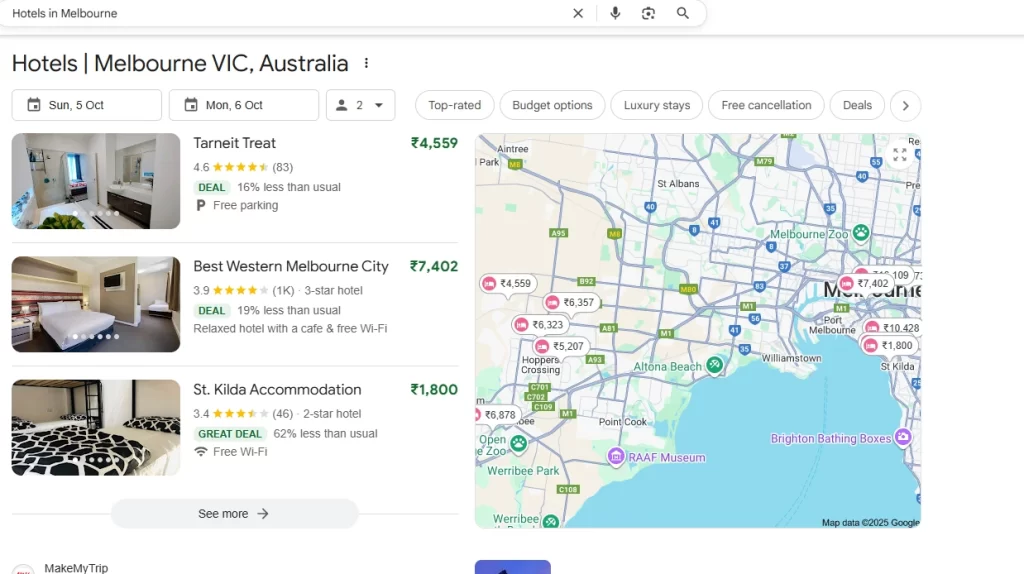What Is Keyword Cannibalization Really Costing You? (And How to Fix It)

Ever feel like your website pages are competing with each other to rank in Google search results? You’re trying to optimize your site like a pro and publishing articles on new or trending topics, yet your website’s ranking seems to be stuck in vacation mode.
The issue might not be caused by external factors or competitors. The problem could be hiding within your own website.
One of the biggest hidden reasons behind slow or stagnant rankings is keyword cannibalization.
This is a common SEO issue that occurs when multiple pages on your website target the same keyword. This confuses search engines and ends up diluting your visibility, causing you to lose your most valuable asset: targeted traffic.
The most dramatic part? Many site owners don’t even realize they’re dealing with keyword cannibalization. They continue creating quality content, hoping to climb the Google rankings, not knowing that their own content may be holding them back.
If this sounds familiar, you need to read this article all the way to the end.
So, what is keyword cannibalization, how to spot it, and fix it?
What Is Keyword Cannibalization?
Keyword cannibalization occurs when multiple pages within the same website compete for the same keyword. Instead of helping your site rank better, each page ends up undermining the others, reducing their chances of ranking well in search results. This not only affects the individual pages but also harms your overall website performance and authority in the eyes of search engines.
Let’s understand this with an example:
For example, someone might search for “Hotels in Melbourne.”
In this case, the search intent is not clearly defined, it’s unclear whether the person is simply gathering information for future planning or looking to book a hotel room immediately. Due to this ambiguity and keyword cannibalization by different websites, Google tends to display a variety of results.
Informational Pages

Listing Pages

How Is Keyword Cannibalization Hurting Your Ranking?
When AI and search engines try to identify the most relevant page to show to your target audience, keyword cannibalization can confuse them. This confusion makes it difficult for even a single page to rank higher, ultimately reducing your website’s visibility in Google search results.
Keyword cannibalization also weakens the impact of backlinks. Instead of strengthening one authoritative page, backlink equity gets spread across multiple pages targeting the same keyword. As a result, each individual page struggles to rank well in search engine results.
Additionally, it becomes harder for search engines to identify the most relevant and authoritative page for a given search query. This can lead to higher bounce rates, a poor user experience, and ultimately a lower return on investment (ROI). On top of that, optimizing multiple competing pages is challenging, as resources and effort get divided.
Tips To Identify Keyword Cannibalization
To think critically and solve problems, you must start by recognizing the actual issue.
1. Manual Search
This is one of the simplest and easiest steps to understand. Start by manually searching your target keywords on Google. Look at which of your pages are ranking for the same keyword. If you see multiple pages from your website appearing for the same search query, it’s a strong sign of keyword cannibalization.
You can also try searching your keyword along with your brand or company name. However, this method can be time-consuming and may not provide a complete picture.
2. Use a Keyword Cannibalization Checker Tool
There are several tools, both free and paid, that can help you detect keyword cannibalization. Tools like Ahrefs, SEMrush, and others offer comprehensive keyword analysis and reporting. These tools can save time and provide detailed insights into which pages are competing for the same keywords.
3. Review Your Content Strategy
Ask yourself:
- Are you repeatedly creating content around the same keyword?
- Do your landing pages, blog posts, or service pages have overlapping content targeting the same keyword?
If the answer is yes, it’s time to revise your strategy. Focus on creating distinct, focused content for each target keyword to avoid internal competition.
4. Use Google Search Console
Google Search Console is one of the most effective tools for identifying keyword cannibalization. It shows how your pages perform for specific search queries. If the data reveals that multiple pages are ranking for the same keywords, that’s a clear indication of keyword cannibalization.
How To Fix The Issue
Once you have discovered that keyword cannibalization is affecting your site, below, we have listed some strategies to resolve the issue and optimize your content:
1. Consolidate and Redirect Similar Pages
One of the easiest and most effective ways to tackle keyword cannibalization is by consolidating and redirecting cannibalized pages to a single, authoritative one. Consolidating content not only prevents cannibalization but also enhances the authority of the page. It signals to search engines and AI that your content is being updated and replaced with a more comprehensive, high-quality version.
Tips To Consolidate
- Merge the most valuable content from each competing page into one comprehensive resource.
- Update the merged page with fresh, relevant, and informative content that adds value to the user.
- Use 301 redirects to point the old, redundant pages to the new consolidated page. This helps retain link equity and ensures a smooth user experience.
2. Use Canonical Tags
Canonical tags are an effective way to address keyword cannibalization without needing to consolidate, remove, or merge content. They signal to search engines and AI which version of a page should be prioritized and ranked in search engine results, while still keeping the other versions accessible to users.
For Example:
Suppose you own a law firm website and have multiple pages targeting a similar keyword like “Free Consultation Legal Services,” such as:
- Page A: Free consultation legal services aid
- Page B: Best lawyers for free consultation legal services
Both pages have nearly the same keyword intent. However, after reviewing their performance and content quality, you determine that Page A provides a better user experience.
In this case, you can add a canonical tag to Page B, pointing to Page A. This tells search engines that Page A is the preferred version to index and rank, while still allowing visitors to access both pages.
3. Implement Different Search Intent For Duplicate Pages
You can resolve keyword cannibalization by aligning each duplicate page with a different search intent. This ensures that each page serves a unique purpose, reduces internal competition, and improves SEO performance.
Here are the four main types of search intent to consider:
- Navigational: Users are looking for a specific website or page, like searching for a law firm’s name or contact page.
- Informational: Users seek general information, such as legal advice or explanations of legal terms or processes.
- Transactional: Users are ready to take an action, like scheduling a consultation or hiring a lawyer.
- Commercial: Users are researching services to make a decision, comparing different law firms, lawyers, or prices.
4. Link Optimization
Enhance page authority by utilizing internal links and backlinks to direct search engines to the preferred page.
How to Do It:
- Audit the website to identify instances where the same anchor text links to different pages. Consolidate these links and redirect them to the appropriate page.
- Build backlinks to authoritative pages to boost trustworthiness and credibility.
- Optimize the page title, meta tags, and meta descriptions to align with SEO best practices.
- Internal linking: Redirect cannibalized pages to the preferred target page to avoid competition between similar content.
Strategies You Should Not Go For
| Page Deletion | Deleting old content from your website can have a negative impact on your search engine rankings because some of that content may still be valuable to users.When you delete a page, you risk losing organic traffic and potentially breaking your internal linking strategy, which can harm your site’s overall SEO performance. |
| No Indexing Tags | Using noindex tags might seem like a simple solution, but it can do more harm than good. Applying a noindex tag means that, regardless of the page’s ranking or backlink profile, it will no longer appear in search engine results. This can lead to a loss of valuable visibility and traffic. |
| De-optimizing | Removing targeted keywords from a page may appear to be an easy fix for keyword cannibalization, but it often backfires. De-optimizing can harm the page’s performance by reducing its relevance for important search queries and diminishing its overall SEO value. |
Final Words: Avoid keyword cannibalization from the outset
As your website grows, it’s common to use similar keywords across multiple pages, which can lead to keyword cannibalization later on. Therefore, it’s important to take preventive measures early to avoid this issue from the start.
- Conduct thorough keyword research to identify distinct keywords for each page.
- Map unique keywords to specific pages to avoid competition between content.
- Use keyword variations, including synonyms and long-tail phrases, to target a wider audience.
- Optimize internal linking to guide search engines and users to the most relevant pages.
- Regularly monitor keyword performance to detect and address potential cannibalization issues.
We hope this article has shown you that keyword cannibalization can be overcome with the right strategy. Follow the tips provided carefully to help you avoid this issue in the future.At SEOBookLab, we recommend checking your site once a month to detect and fix any keyword cannibalization problems. If you find DIY challenging, feel free to contact us. We’re happy to assist you and help resolve the issue before it’s too late.

